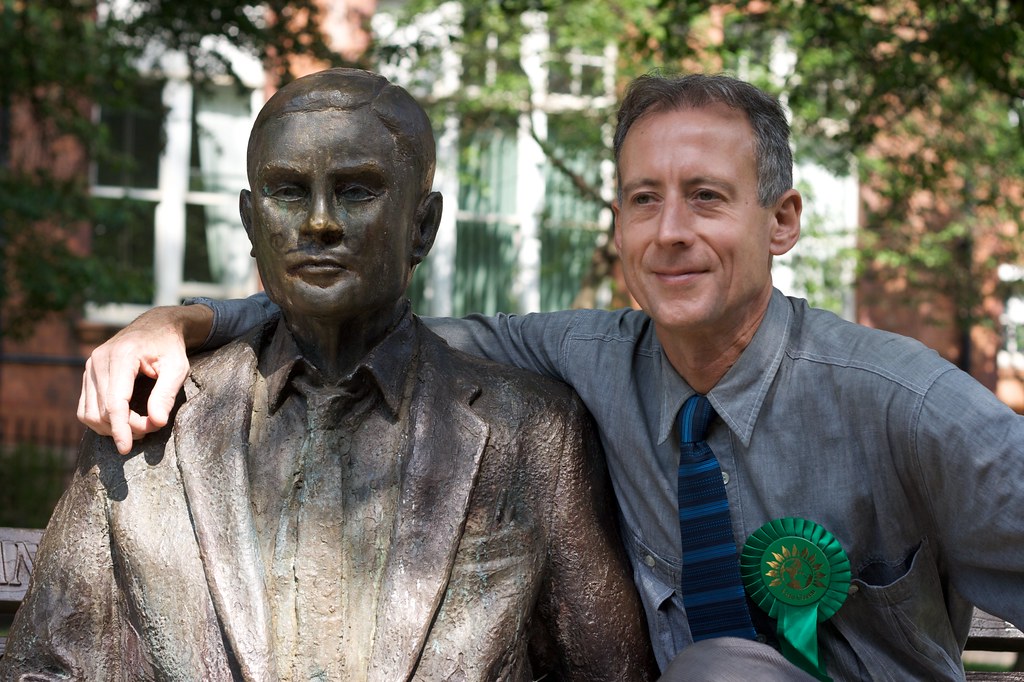Radical socialists in England and Wales face a dilemma. The Labour Party is now beyond reform. The idea of recapturing Labour for the left is a hopeless dream.
Equally depressing, alternative left parties like the Socialist Alliance and Respect offer little cause for optimism. The Socialist Alliance tried, but failed, to secure electoral success. Respect is neither grassroots nor democratic. It is run on the same “democratic centralist’ lines as the Blairite Labour Party. All major decisions are taken at the top. It is dominated by the Socialist Workers Party, which is notorious for packing meetings and organising secret slates to secure the election of its people to key positions.
I left the Labour Party in 2000, after 22 years membership. My reason? “New” Labour has abandoned both socialism and democracy. It is no longer committed to the redistribution of wealth and power. Tony Blair spends more time with millionaire businessmen than trade union leaders. The gap between rich and poor has widened since 1997. Civil liberties are under ceaseless attack by David Blunkett, the most right-wing home secretary since Sir David Maxwell Fyfe in the 1950s.
There is, alas, no possibility of undoing Blair’s right-wing “coup’. Internal party democracy has been extinguished. Ordinary members have no say. Everything important is decided by The Dear Leader and his acolytes. Fixing the selection process for the London mayoral candidate in 2000 to defeat Ken Livingstone was one of many examples of Labour’s corruption. No socialist can remain in a party that rigs ballots and denies members a meaningful say in the decisions of their party.
I joined Labour because I want social justice and human rights for all. My values and aspirations remain the same. Labour’s have changed fundamentally and irreversibly. Winning back Labour to socialism and democracy is now impossible.
No political party lasts forever. Even the most progressive party eventually decays or turns reactionary. Labour’s great, historic achievement was the creation of the welfare state. The current party leadership is in the process of privatising it.
Leaving Labour does not mean giving up the battle for a fair and just society. There is an alternative option. After two decades of moving from right to left, the Green Party now occupies the progressive political space once held by left-wing Labour. It offers the most credible left alternative to Labour’s pro-war, pro-big business and pro-Bush policies.
The Green Party’s manifesto for a sustainable society (www.greenparty.org.uk) incorporates key socialist values. It rejects privatisation, free market economics and globalisation, and includes commitments to public ownership, worker’s rights, economic democracy, progressive taxation and the redistribution of wealth and power.
Greens put the common good before corporate greed, and the public interest before private profit. Forging a red-green synthesis, they integrate policies for social justice with policies for tackling the life-threatening dangers posed by global warming, environmental pollution, resource depletion and species extinction.
Unlike the traditional left, with its superficial environmentalism, Greens understand there is no point campaigning for social justice if we don’t have a habitable planet. Ecological sustainability is the precondition for a just society. The Greens also recognise that tackling the global ecological threat requires constraints on the power of big corporations. Profiteering and free trade has to be subordinated to policies for the survival of humanity. Can any socialist disagree with that?
Although the Green Party is not perfect (is any party perfect?), its anti-capitalist agenda gives practical expression to socialist ideas. Very importantly, ordinary members are empowered to decide policy. The Greens are a grassroots democratic party, where activism is encouraged and where members with ideals and principles are valued.
Unlike tiny left parties, such as the Socialist Alliance and Respect, Greens have a proven record of success at the ballot box, with candidates elected in the London, Scottish, local and European elections. These elected Greens are a force for social progress, far to the left of Labour on all issues. They are also well to the left of the Socialist Alliance and Respect on questions like women’s and gay rights, health care, animal welfare, the environment and third world development.
People tempted to support Respect in the forthcoming elections need to answer two crucial questions. Why split the left-wing vote and thereby diminish the electoral prospects of both Respect and the Green Party? Why vote for an unproven political force like Respect when there is a credible and radical left party – the Greens – that already has seats and can win lots more with the support of people on the left?










